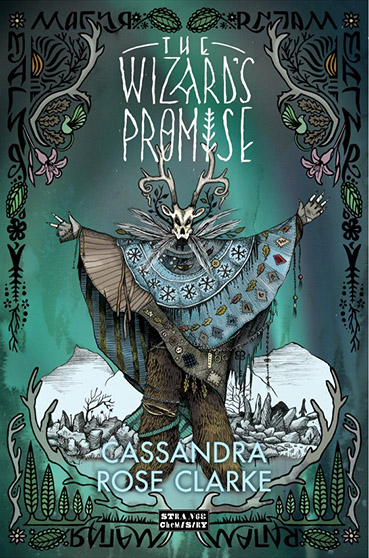Film Review: Shank (2010) — A (World) SFF Film Odyssey

Most of you haven’t heard of Shank. On some level, that’s probably a good thing. Though low-budget can sometimes produce remarkable results, Shank is a film which suffers from a feeling of inexperience, overexertion, and disjointedness. Set in a depression-rattled London in 2015, Shank follows a ragtag group of young men who are trying to earn enough money to do…something. It’s never made clear exactly why they need to raise the money to go wherever they’re going, and this fact becomes irrelevant when Junior’s (Kedar Williams-Stirling) brother, Rager (Ashley “Bashy” Thomas — the UK rap artist), is murdered by rival gang leader, Tugz (Jerome Holder). His dreams crushed, Junior sets off on a journey to get revenge, bringing along his family of gang members: Kickz (Adam Deacon), Craze (Michael Socha, who looks suspiciously like Jake Gyllenhaal), and Sweet Boy (Jan Uddin).
Poll: Shaun should read this as…?

If you’ve been paying attention, there’s this whole Worldcon Fundraiser thing going on for Shaun (i.e., me). One of the Milestone Perks involves me reading a classic work of literature or philosophy as either Captain America (post-government cutbacks) or Yoda (the green ninja). I’ve let one of the donors pick the work, but the general public (i.e., you) gets to pick the character I will play! Fabio Fernandes wants me to read from Thus Spoke Zarathustra: A Book for All and None by Friedrich Nietzsche. Now it’s up to all of you to decide the character!
My Superpower: Cassandra Rose Clarke

My Superpower is a regular guest column on the Skiffy and Fanty blog where authors and creators tell us about one weird skill, neat trick, highly specialized cybernetic upgrade, or other superpower they have, and how it helped (or hindered!) their creative process as they built their project. Today we welcome Cassandra Rose Clarke to talk about how the power of making time for TV (psst: and organization) relates to The Wizard’s Promise. ——————————– Let us consider Wolverine. His superpower appears to be the ability to retract claws out of his knuckles like a cat, and indeed, for many years as a child I thought that was his superpower and wondered how such a weirdly specific mutation could come to be. But at some point I learned that Wolverine’s actual superpower is regeneration. It allows him to retract claws out of his knuckles like a cat and do other wonders as well — but mostly the cat claw thing. My writerly superpower is the same way.
Top 10 Episodes and Blog Posts for April 2014

Here they are! Episodes: 201. The Hugo Awards (A Discussion w/ Justin Landon and Natalie Luhrs) 198. Brazilian SF w/ Fabio Fernandes, Cesar Alcázar, Libby Ginway, and Jacques Barcia #WorldSFTour 199. Sofia Samatar (a.k.a. Malkia wa Ndoto) at ICFA (An Interview) #WorldSFTour Episode 4.2 — Torture Cinema Meets The Wicker Man 200. We’re 200! (Hugos, World SF, and Trivia w/ the ENTIRE Crew) 197. Mannequin (1987): A Torture Cinema “Adventure” 116. Season of the Witch — A Torture Cinema “Adventure” 141. Final Hugo Thoughts + the Hugh Howey Fiasco w/ Justin Landon and Jonathan McCalmont #18. Summer Wars (2009) w/ Daniel Huddleston — #WorldSFTour 196. Fran Wilde (a.k.a. Chadwick’s Prodigy) — An Interview at ICFA Blog Posts: We’re Nominated for a Hugo Award! On Recent South(east) Asian SF/F by Benjanun Sriduangkaew (Guest Post) New to The Skiffy and Fanty Show podcast? Hello! Cultural Tourists (Part 2): Publishing and Representation by Charles Tan This Katamari Feels Cleaningsish — Magical Cleaning Methods! by Julia Rios Book Review: The Lies of Locke Lamora by Scott Lynch (by Paul Weimer) Mining the Genre Asteroid: THE DRAGON WAITING by John M. Ford (by Paul Weimer) A (World) SFF Film Odyssey: Mutant Girls Squad (2010) and Anime’s Excesses by Shaun Duke IDIC and the problem with gatekeepers by Joyce Chng Book Review: Heirs of Grace by Tim Pratt (by Paul Weimer) Enjoy!
IDIC and the problem with gatekeepers

When I started writing what I loved (science fiction) in about 2007, I didn’t have the impression that science fiction was US-centric. In fact, I thought that science fiction was like Star Trek’s philosophy of IDIC. Infinite Diversity in Infinite Combinations. Wasn’t science fiction supposed to be like that? I mean, I did submit stories before and one even got published. That was in 2000, when I was fresh out of university, armed with a postgraduate degree. So, when I started writing in 2007, I thought it was still peachy, and a writer like me — a writer from Southeast Asia — would be easily accepted. My steampunk story “A Matter of Possession” was published by Crossed Genres in 2010 in their issue on alternate history. It was my first entry into an interesting scene (I couldn’t use ‘community’ — didn’t feel much of it, though). I realized, to my shock, that people like me, people living outside the United States, had (still have) difficulty getting their stories published. The gatekeepers of serious science fiction were standing at the gate and barring entry to those trying to find their way in. Often, the accepted stories were written by white men. I wondered who made the gatekeepers gatekeepers? Who had set the rules and regulations? Is science fiction going to be a pub where unwanted and unwelcome folk are kept outside the window, desperately staring in while the accepted cliques mingle, laugh and have fun? Who chooses who will write our future(s)?
Book Review: The Lies of Locke Lamora by Scott Lynch

It’s a pleasure to re-read (or re-listen) to an old favorite. In an age where readers (including myself) look for new books, new authors, new perspectives, and new good stuff, I appreciate having the chance to revisit something, even from 7 years ago, that, if anything, holds up better for me now than it did when I read it. Camorr. A Venetian-style fantasy city, complete with canals, a strong mercantile sector that drives the rest of the city and the region around it. A city where the Duke rules, the Dons reign, the Bankers cash in and the ordinary person is caught between them and the nest of thieves who infest the city. By the command of Capa Barsavi, the lord of thieves, who has made a bargain with the duke’s spymaster, the thieves do not touch the Duke, or the Dons, but all others are fair game. And what game they are.

